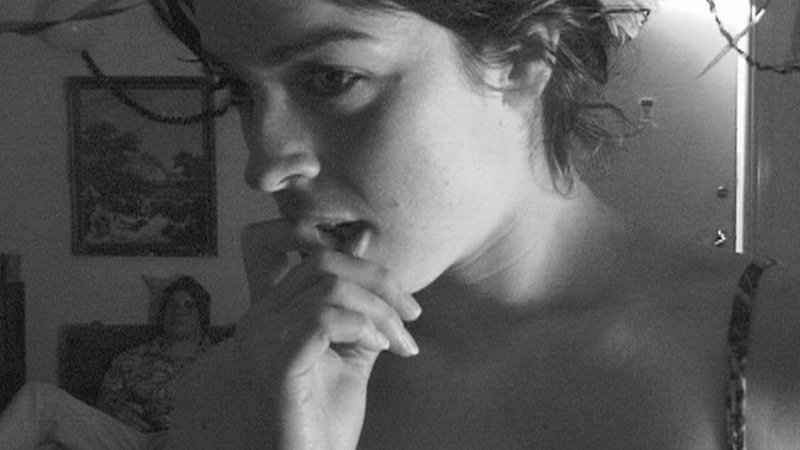
Screened as part of NZIFF 2004
Murmurs 2003
Life in a Mt Victoria flat is observed with sly wit by Elric Kane and Alexander Greenhough in their second low-budget, digital feature. Amy, a music student, awkward and sexually confused, is the house’s unappreciated and resentful mainstay. Her plaintively romantic clarinet stirs the household into a heightened state of inactivity as the film begins, and it’s she who keeps stock of who’s paid their bills and who hasn’t done the dishes. Slacker Chris chain-smokes his way through daytime television or heads down Cuba Street to spend the phone money on slot machines. He’s a passionate expert on soapie casting, but his laconic indifference to anything going on in the real world makes him simultaneously the film’s hero and it’s number one long-term loser.
James and Nicky, the flat’s couple, aren’t home so much during the day. He’s a lecturer and she’s his princess. The cosy cuteness of their relationship belies one heart of steel, revealed when the princess suspects the prince of roving. It’s a suspicion cunningly sown by the jealous Amy, though Nicky might be wiser to worry about James’s predilection for punishing, solitary jogs. Then there’s the intriguingly shady Dave whose whereabouts is explained in the cryptic sequences that book-end the film. A party planned by Dave goes ahead in his absence and brings underlying tensions to a head, compounded by the appearance of the landlord, played with a commanding, seen-it-all stoniness by George Rose.
Abandoning the long takes and formal detachment of last year’s I Think I’m Going, Kane and Greenhough’s new film measures out its observations in seven concise daily doses, accumulating evidence that these flatmates have little to offer each other apart from the rent – and even that seems to have gone awry. Conveyed in a jarring, compacted style, Dave’s story takes place in a parallel universe much more convincingly occupied by Ross Bevan in The Shirt and Colin Hodson in .OFF.... Referencing such diverse, recognisable elements of the Wellington digital wave, Murmurs sometimes seems more interested in filmmaking issues than in its greatest assets – its characters and the space they occupy. But though their unsparing attention to the pitiful Amy may win Kane and Greenhough few friends, there’s no mistaking the shrewdness of their continuing take on asocial hetero behaviour in twenty-something bohemia. — BG